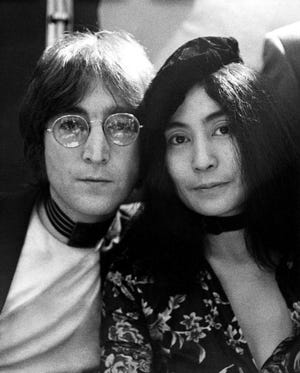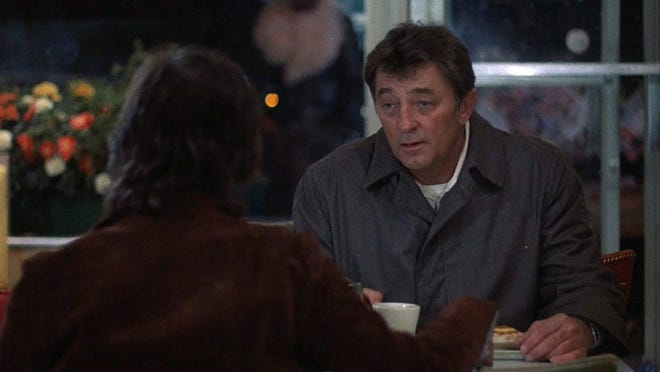
It’s a bit of the ol’ chicken and the egg when looking back at 1971, a year in which music and politics became symbiotic in changing Western society, as most would argue, for the better. But who started it: The advocates for everything from ending the war in Vietnam to championing equal rights for women, gays and impoverished people around the globe; or was it the burst of singer-songwriters who impassionedly called universal attention to the world’s many ills? It’s not a copout to say it was a bit of both, as revealed in the outstanding, eight-part documentary “1971: The Year that Music Changed Everything.”

The title gives you a hint as to which institution the series, premiering May 21 on Apple TV+, favors in giving credit where credit is most certainly due. But it’s highly inclusive in examining the so-called radicals who shook up the status quo. For every Marvin Gaye and John Lennon there was a Germaine Greer, George Jackson or Angela Davis putting the screws to backward thinking no longer acceptable in a rapidly evolving culture. And it’s in how deftly the series weaves the two worlds of music and politics that renders “1971” a must see.

It was particularly relevant for me since I also came of age in 1971, the year I turned 16 and discovered girls and the freedom of being able to drive and, more importantly, think for myself. You might even say I became radicalized by politics, love and especially sex. It was a whole new world for me and all that surrounded it. As it changed, I changed. And “1971” perfectly encapsulates that time and place when creativity and liberal ideals were at their zenith. And nowhere was this eruption of freedom to express yourself more evident in the music industry. Suddenly, there was the androgyny of Marc Bolan and David Bowie, who one observer mistook for Lauren Bacall when spotting the then-unknown icon wearing a dress and perfectly coiffed hair hanging far past his sinewy shoulders.
More:Marshfield promoter aims for ‘a great day of music’ with upcoming live shows in Plymouth
More:Murder mystery: Amy Adams is the ‘Woman in the Window’
Opposite them was a vast uprising of women finally flexing their muscle in the name of feminism, refusing to be pigeonholed as bra-burners while demanding — and starting to grab — the attention of the men who for centuries had been their misogynistic oppressors. With Joni Mitchell, Tina Turner, Carole King and Aretha Franklin at the fore, the glass ceiling started to crack, best exemplified by Pat Loud, whose emancipation from the thankless role of housewifery was burned to the ground before a nationwide TV audience on the world’s first reality show, PBS’s “An American Family.”

All of this and more is presented comprehensively and entertainingly by a group of talented directors and producers led by Asif Kapadia and James Gay-Rees, who shared an Oscar for 2015’s box-office smash, “Amy.” They, along with directors Danielle Peck and James Rogan, follow the “Amy” formula to a T by taking a deep dive into archival clips and period interviews to make their case that 1971 was not just a cultural renaissance, but also a year of incredible creative output, when folks like Bowie, Bolan and Mitchell ushered in a host of singer-songwriters to accompany established stars like Lennon, The Rolling Stones and The Who, all rediscovering themselves with bursts of innovation and political commentary.
The eight parts, divided into such themes as “Our Time Is Now,” exploring the surge in female empowerment through the rise of Mitchell and King; and “The Revolution Will Not Be Televised,” encompassing the Black Power movement and a widespread radicalization capped by the unspeakable atrocities committed against assassinated prisoner-rights advocated, George Jackson, and the mass murder of inmates and guards at New York’s Attica state pen by cops ordered by Gov. Nelson Rockefeller to shoot to kill.

Drugs, too, play a key role, as the heroin-related deaths of Jimi Hendrix and Janis Joplin, along with the 1969 tragedy at Altamont Speedway (the inspiration for the Stones’ “Gimme Shelter”) are pinpointed as the nexus for change, as Flower Power and the “three days of peace and music” met a sudden death while leaving a blank canvas for music to reinvent itself. It’s thrilling watching it evolve, too, with activism as its main motivator. Artists were sick and tired of what they were seeing and they weren’t going to take it anymore.
More:Zombie genre is alive and well in Zack Snyder’s ‘Army of the Dead’
More:Jason Statham is out for revenge in Guy Ritchie’s ‘Wrath of Man’
Throughout the eight episodes, the series is as damning as it is effusive about the musicians at the forefront of what was to become a movement. Some thrived, like Bowie and fellow showman Alice Cooper, while others, like Jim Morrison and Sly Stone, would fall prey to drugs. But the common thread is always the music itself. Like 1939 is to film, 1971 is to music, with a treasure trove of classics debuting seemingly every one of the year’s 52 weeks: “Tapestry,” “Hunky Dory,” “Imagine,” “Who’s Next,” “There’s a Riot Goin’ On,” “What’s Going On,” “Sticky Fingers,” “All Things Must Pass,” “Electric Warrior,” “Blue” and “Just as I Am” by the often unsung Bill Withers. And to prove what a great year it was, Paul McCartney’s “Ram” and Led Zeppelin’s masterpiece “IV” don’t even rate a mention.

Yes, it’s a smorgasbord full of endless opportunities for the filmmakers to explore. And if there’s a flaw, it’s because there’s not enough here to fully satisfy. But for me, the mark of a great film is one that leaves you craving more. And “1971” is such an entity, a relevant history lesson presented with a burst of nostalgia and enlightenment, one that dared us to “Imagine” and to ask “What’s Going On?” And although the people of the world continued to struggle for decades after, for that brief moment in time, everything about music was “Hunky Dory.”
TV Review
1971: THE YEAR THAT MUSIC CHANGED EVERYTHING
(TV-). An eight-part documentary exploring how music and musicmakers influenced a sea change in Western society. Premiering May 21 on Apple TV+ Grade: A-
Thanks to our subscribers, who help make this coverage possible. Please consider supporting quality local journalism with a Patriot Ledger subscription.
